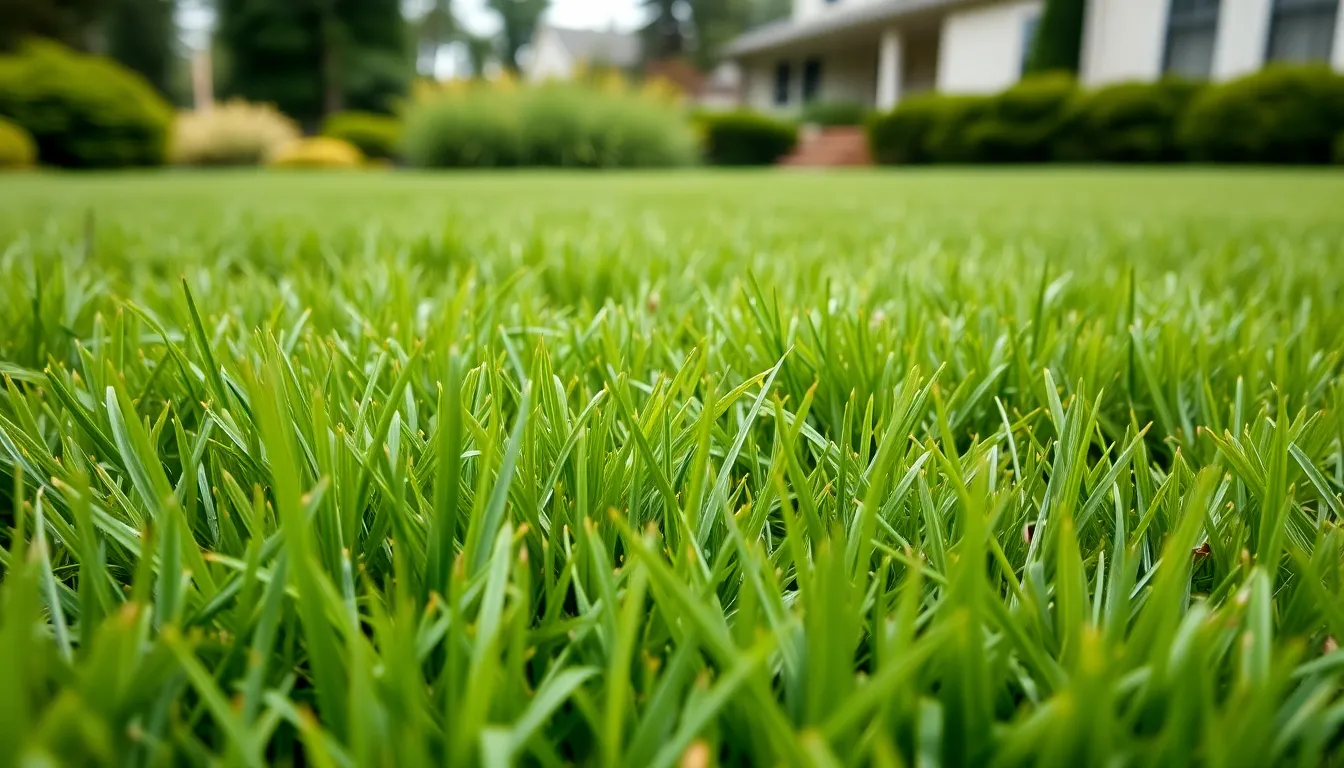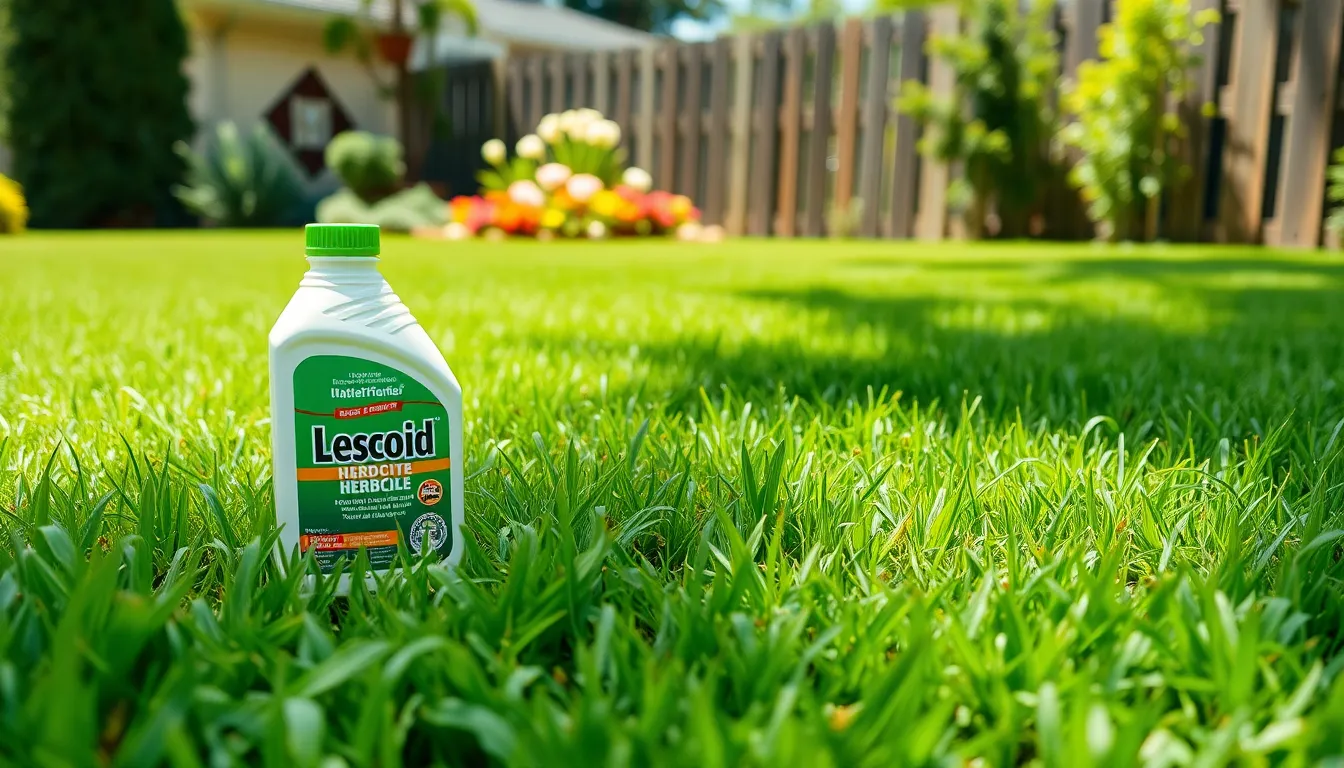Table of Contents
ToggleWhen it comes to keeping your lawn lush and green, the right herbicide can make all the difference. Enter Lescohid, a product that’s been turning heads in the world of lawn care. But is it truly the best option for grass? With so many choices out there, picking the right herbicide can feel like finding a needle in a haystack—if that haystack were also full of dandelions.
Lescohid promises to tackle pesky weeds while giving your grass the love it deserves. But does it live up to the hype? In this article, we’ll dig into the details, weighing the pros and cons of Lescohid. Whether you’re a lawn care newbie or a seasoned pro, you’ll want to stick around to find out if this herbicide is the secret weapon your grass has been waiting for.
Overview of Lescohid Herbicide
Lescohid serves as a specialized herbicide formulated for effective weed control in grass. This product caters to homeowners seeking a healthy lawn while minimizing weed competition.
What Is Lescohid Herbicide?
Lescohid is a post-emergent herbicide primarily used for managing unwanted weeds in turfgrass. Developed for both residential and commercial applications, it targets broadleaf weeds while being safe for established grasses. Registered with the Environmental Protection Agency, Lescohid combines efficacy with user safety features. This herbicide plays a key role in lawn maintenance by minimizing weed populations and promoting healthy grass growth.
Key Ingredients and Their Benefits
Lescohid contains several active ingredients designed for maximum weed control. Glyphosate ranks among these, effectively targeting broadleaf weeds and certain grasses. Another ingredient, 2,4-D, works to disrupt plant growth, particularly in dicotyledonous species. The combination of these ingredients leads to rapid weed knockdown and long-lasting effects on unwanted foliage. Additionally, the formulation is designed for targeted applications, ensuring minimal impact on desired grass species. This specialized blend enhances its effectiveness, making it a preferred choice for lawn care professionals.
Effectiveness of Lescohid Herbicide

Lescohid herbicide effectively targets and controls a wide range of broadleaf weeds in established grass. Its unique formulation makes it a strong option for lawn care.
Types of Grass Treated
Lescohid is suitable for several grass types. It works well on Kentucky bluegrass and tall fescue, promoting healthy growth while eliminating invasive weeds. St. Augustine and Bermuda grass also tolerate Lescohid, ensuring minimal lawn damage. Homeowners find that it helps maintain a lush appearance across different climates.
Comparison with Other Herbicides
Comparing Lescohid with other herbicides reveals its advantages. Many users note its rapid action and residual effectiveness, outperforming competitors like Roundup and Atrazine. While Roundup targets a broader spectrum of plants, it can harm desired foliage. Atrazine is specific to certain grass types and may limit versatility. Lescohid offers controlled application, making it favorable for residential lawns.
Application Guidelines
Applying Lescohid effectively ensures optimal results in weed management for lawns. Understanding proper usage and safety precautions helps maintain lawn health and safety.
Best Practices for Use
Follow manufacturer instructions closely to ensure the best results. Apply Lescohid on a calm day to prevent drift to non-target plants. Best results occur when applied to young, actively growing weeds. Watering before application promotes absorption of the herbicide. Ideal temperatures range from 60°F to 85°F for maximum efficacy. Restoration of treated areas takes place as grasses recover without weeds. In established grass, choose a non-ionic surfactant to improve adherence.
Safety Precautions
Safety is paramount when using herbicides like Lescohid. Wear protective gloves, eyewear, and clothing to minimize skin contact. Ensure adequate ventilation if applying indoors or near residential areas. Store Lescohid in its original container, keeping it out of reach of children and pets. Avoid application before rain events to prevent runoff and environmental contamination. Monitor local guidelines and regulations for proper disposal of herbicide containers. Consider using a sprayer with appropriate equipment to control the application and reduce exposure.
Customer Reviews and Feedback
Customer feedback highlights varied experiences with Lescohid, providing insights into its effectiveness and areas of concern.
Positive Experiences
Users frequently praise the rapid action of Lescohid against broadleaf weeds. Many homeowners report a noticeable reduction in weeds within days of application. Grass types such as Kentucky bluegrass and Bermuda thrive post-treatment, with minimal damage observed. Additionally, lawn care professionals often mention its easy application, noting successful results even under less-than-ideal weather conditions. Satisfied customers appreciate its residual effectiveness that lasts longer than many competitors. The inclusion of glyphosate and 2,4-D in its formulation contributes significantly to this swift action, making Lescohid a reliable choice for maintaining a healthy lawn.
Concerns and Criticisms
While many users enjoy positive results, some express concerns about the safety of Lescohid around desirable plants. Specific reports indicate instances of unintended damage to ornamental plants, cautioning users about nearby foliage. A few customers also note variability in effectiveness depending on weed maturity, recommending timely applications for optimal results. Additionally, some find the odor off-putting during application. Users have raised questions regarding environmental safety, particularly concerning non-target species. Lastly, comparing the product’s cost with alternatives leads some to question its value, especially if results do not meet expectations.
Lescohid herbicide stands out as a strong contender for those seeking effective weed management in their lawns. Its ability to target a wide range of broadleaf weeds while being safe for established grass types makes it a reliable choice for homeowners and professionals alike. The positive feedback from users highlights its rapid action and minimal impact on desirable grass species.
While there are some concerns regarding potential damage to ornamental plants and variability in effectiveness, careful application and adherence to guidelines can mitigate these issues. Ultimately, Lescohid’s proven performance and ease of use position it as a top option for maintaining a healthy and vibrant lawn.




